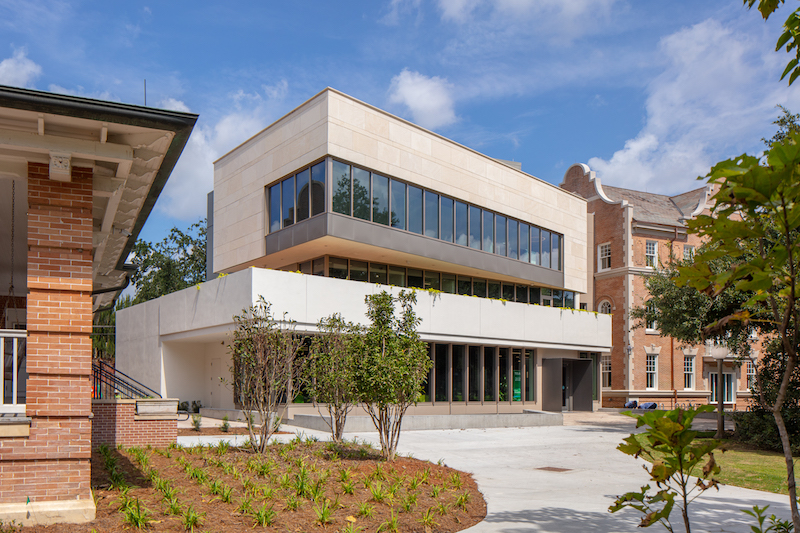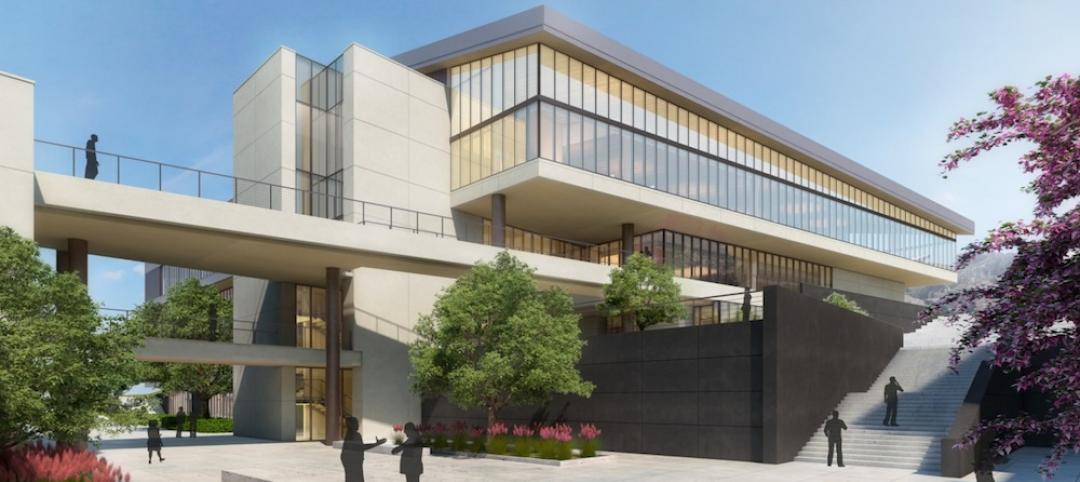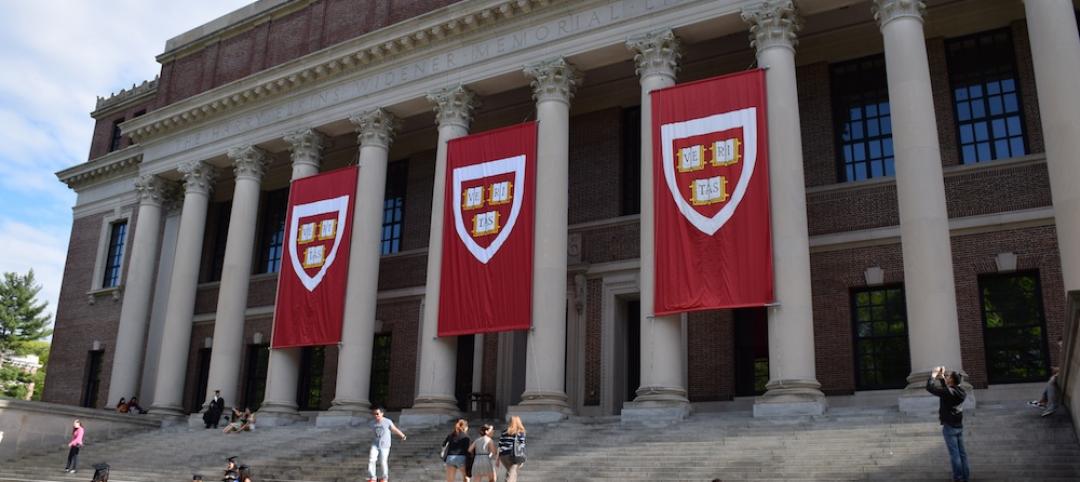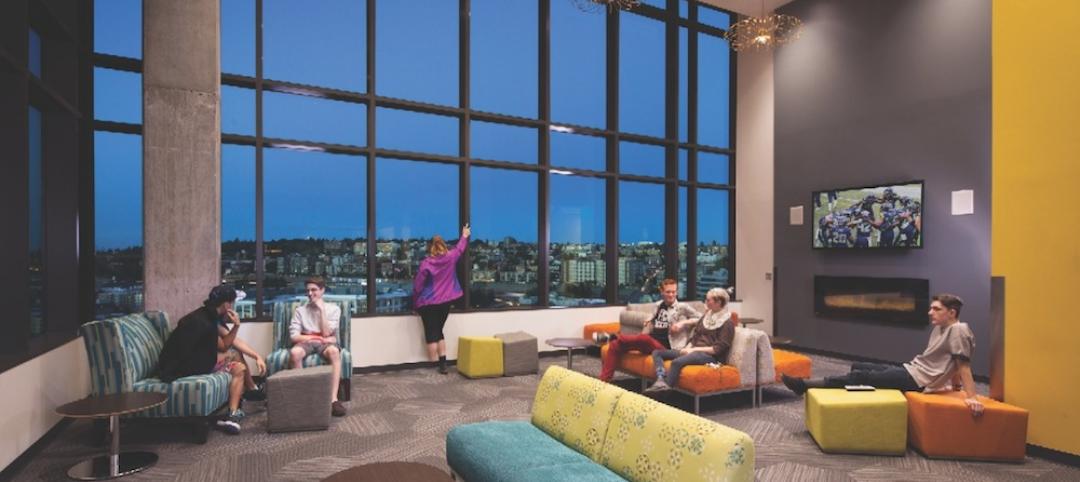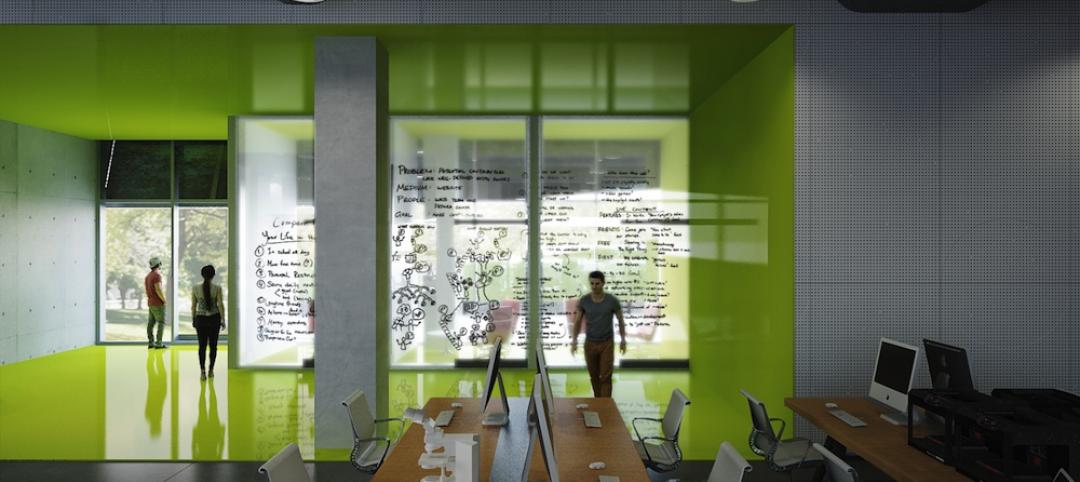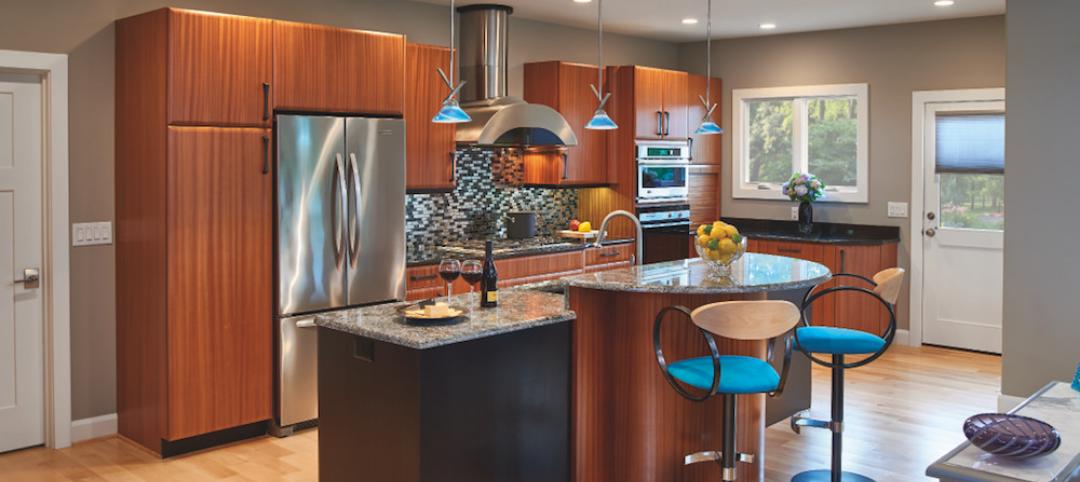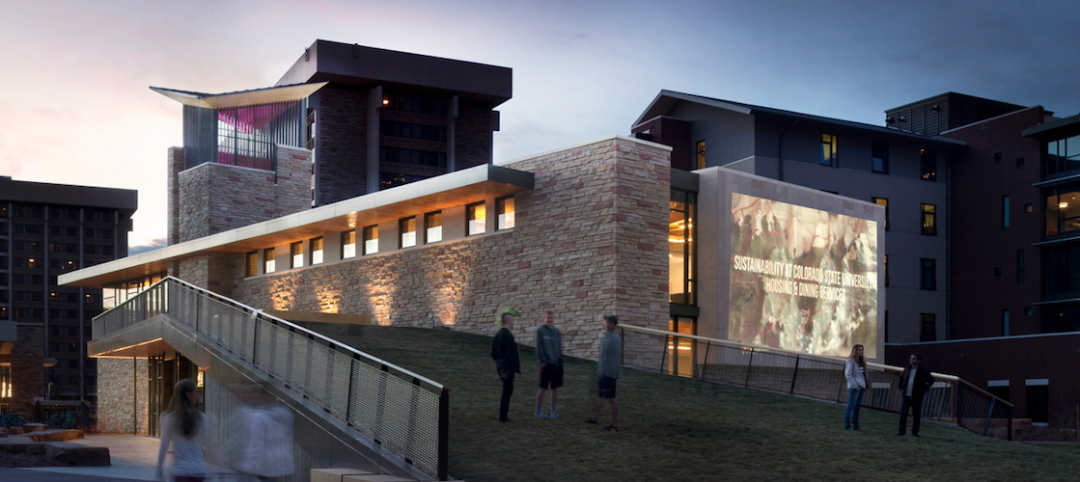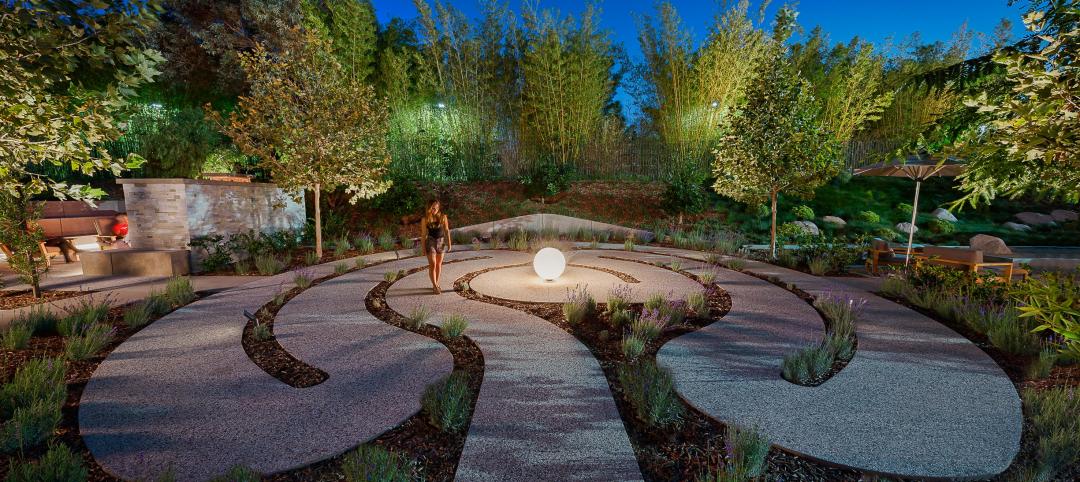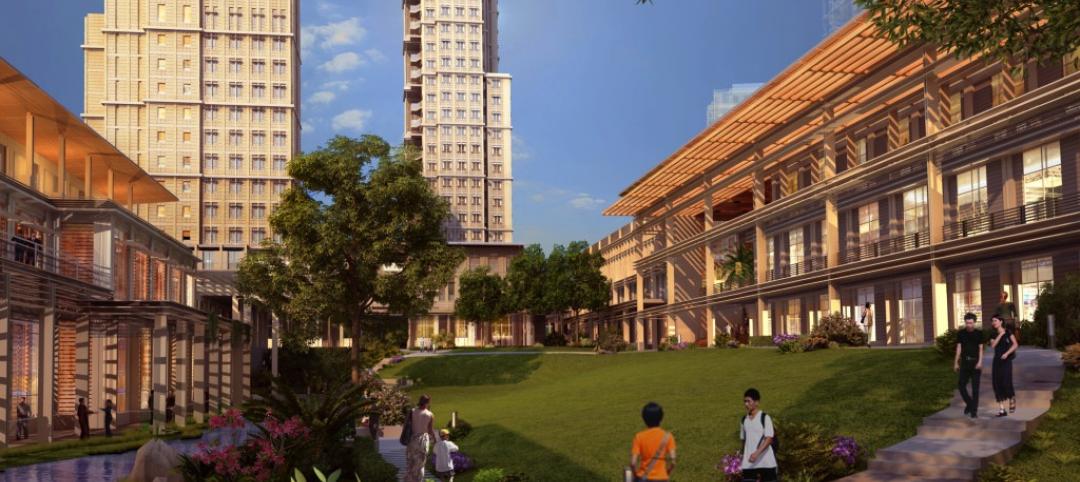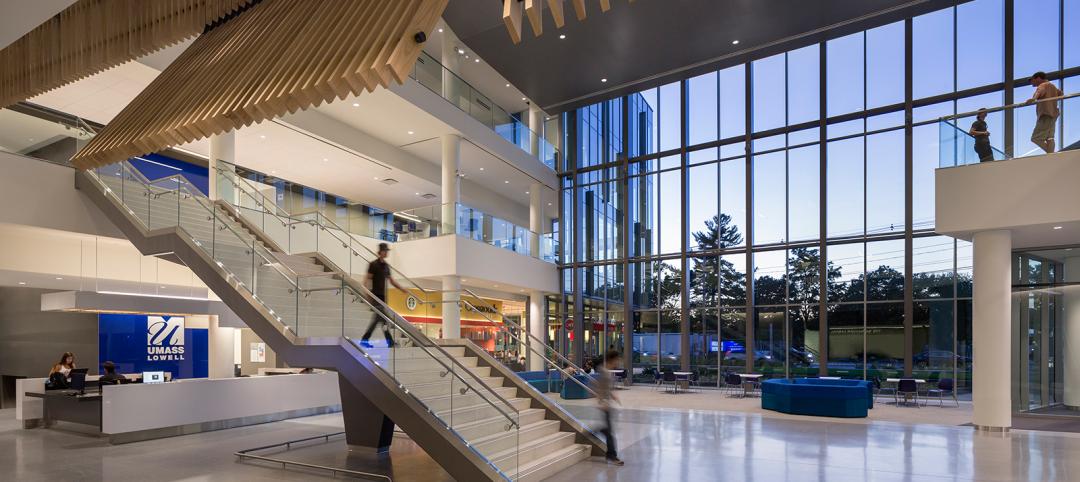Located on Tulane University’s Gibson Quad, Mussafer Hall combines the adaptive reuse of a 1902 brick building with a modern limestone addition. The building is the home of the Center for Student Success, which brings together Tulane’s Academic Advising and Career Services programs.
The 1902 Dutch-Renaissance style building was originally constructed as the college’s first dormitory. The long, narrow building was divided by a double-loaded corridor. The glass-fronted offices and interview rooms lining the hall have windows looking outside to make the building feel open and bright. Two original stairwells have been repurposed as lightwells and, where possible, original brick interior walls were exposed and repointed.
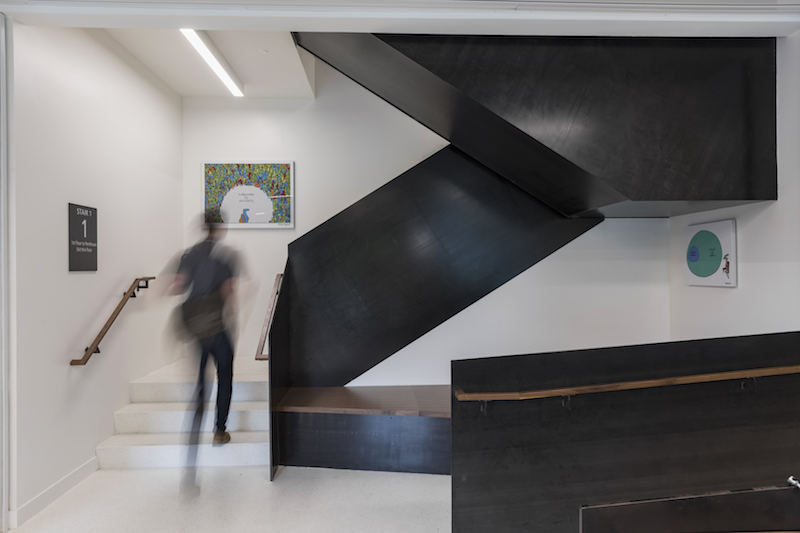 Photo: Sara Essex Bradley.
Photo: Sara Essex Bradley.
The addition sits on a tight site between the 1902 building and a 100-year-old oak tree. The 7,600-sf building navigates its site with a series of shifting cantilevered volumes clad in stucco, limestone, and glass. Mussafer Hall’s triangular footprint is set back from the historic building and angled away from the tree to protect its roots and canopy.
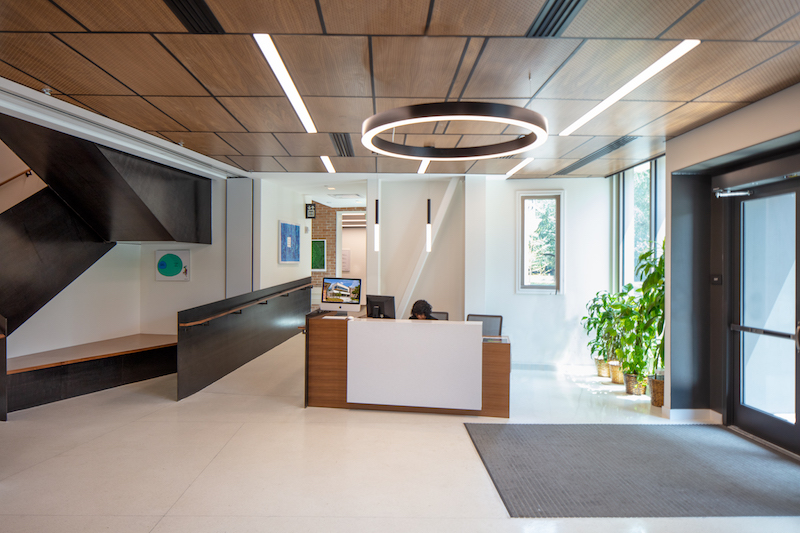 Photo: Neil Alexander.
Photo: Neil Alexander.
The central ground-floor space is designed to accommodate classes, lectures, meetings, receptions, seminars, and other events. Black millwork panels conceal storage areas, flex space, and marker boards.
Mussafer Hall is the second full building studioWTA has designed on Tulane’s campus and the firm’s 12th project for the School.
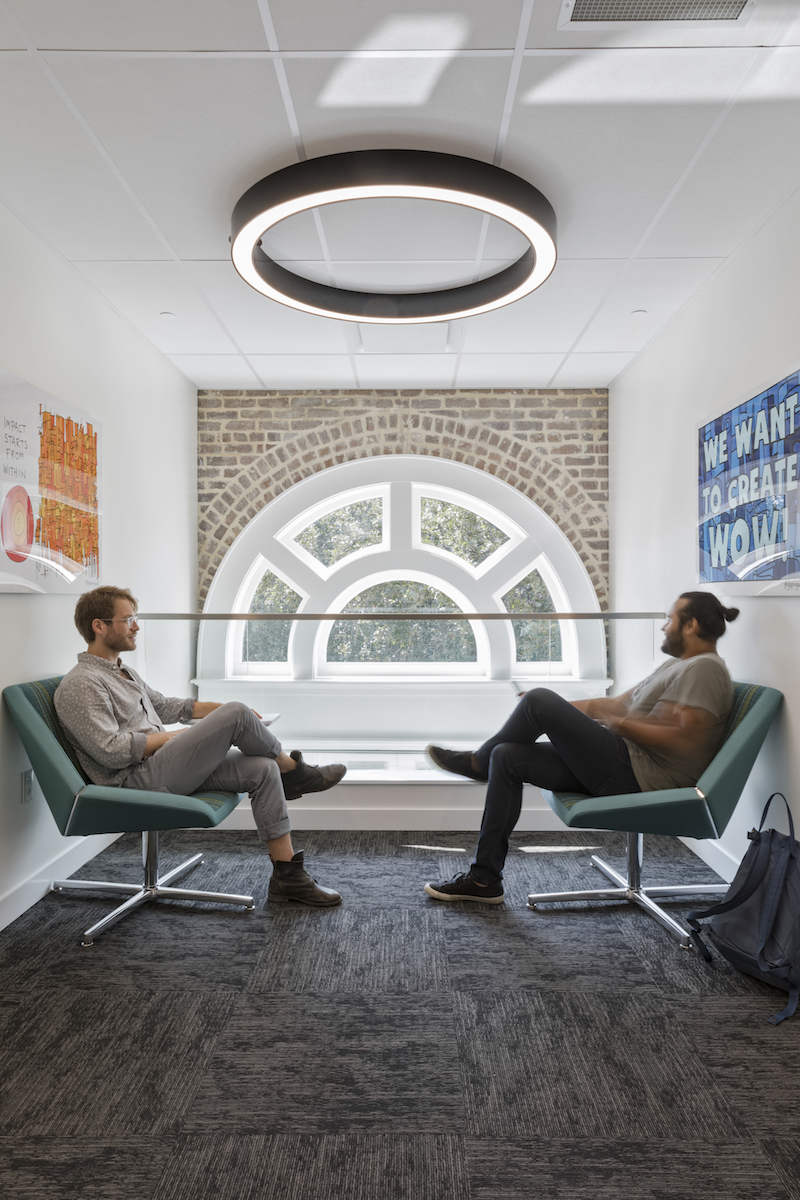 Photo: Sara Essex Bradley.
Photo: Sara Essex Bradley.
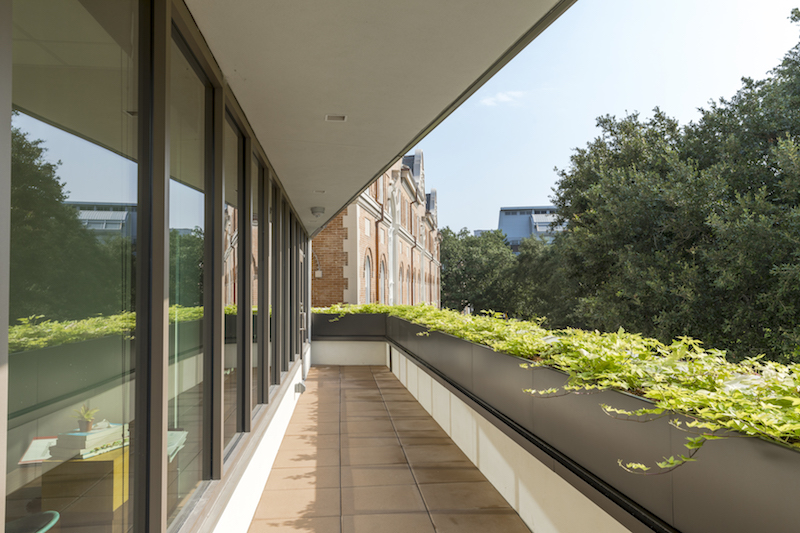 Photo: Sara Essex Bradley.
Photo: Sara Essex Bradley.
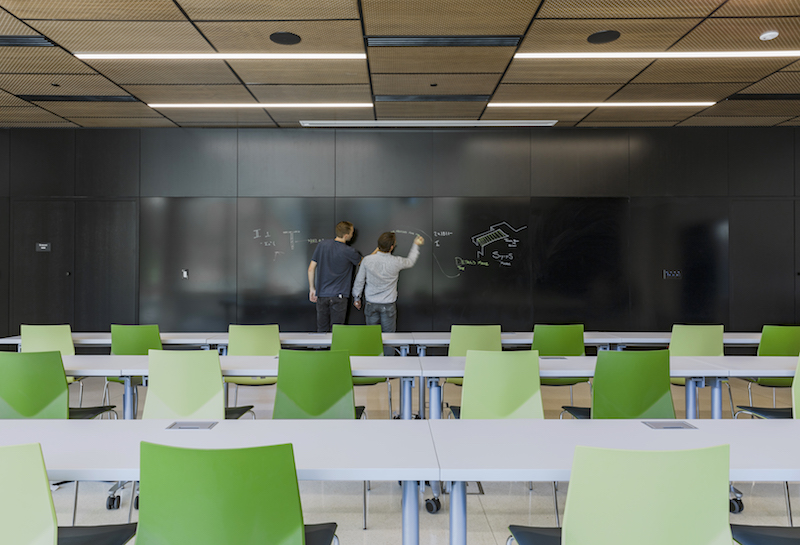 Photo: Sara Essex Bradley.
Photo: Sara Essex Bradley.
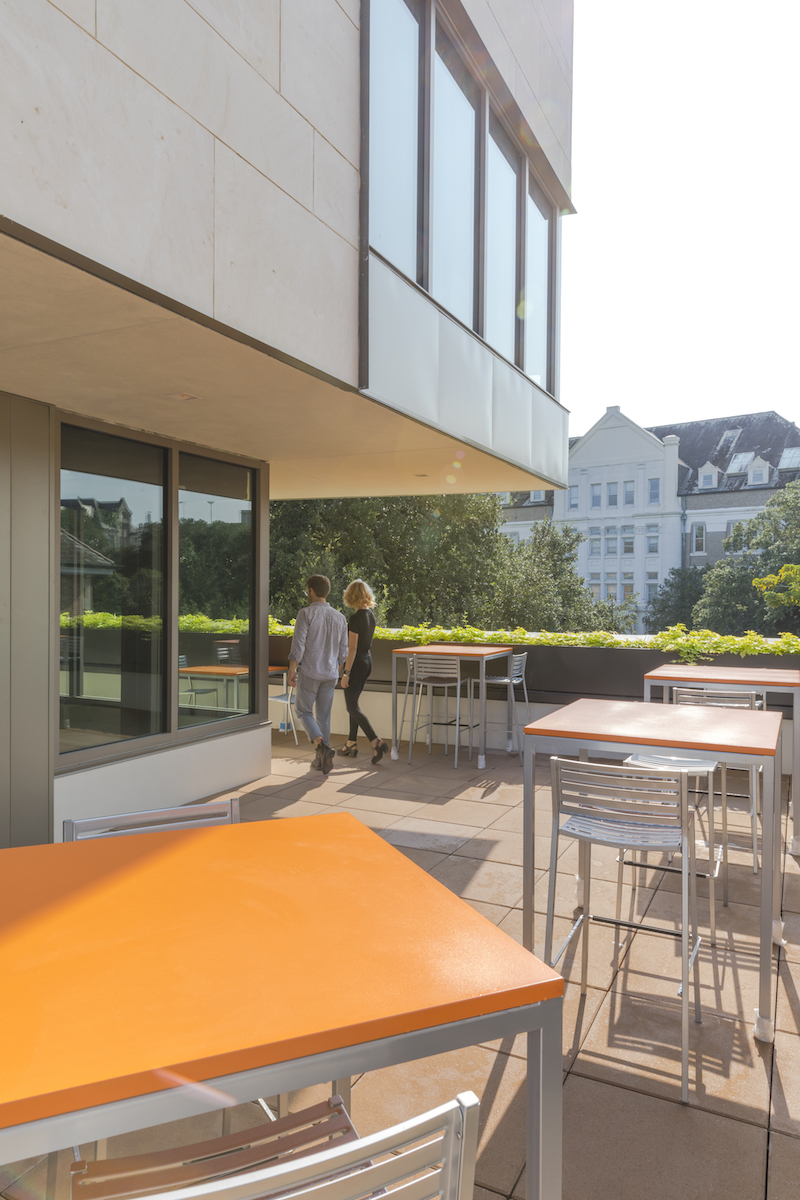 Photo: Sara Essex Bradley.
Photo: Sara Essex Bradley.
 Photo: Neil Alexander.
Photo: Neil Alexander.
Related Stories
University Buildings | Mar 11, 2016
How architects can help community colleges promote community on campus
Even in the face of funding challenges and historic precedent, there are emerging examples of how partnership between two-year academic institutions and designers can further elevate community on campus. CannonDesign's Carisima Koenig has a few key examples.
University Buildings | Mar 1, 2016
The 5 most questionable college and university rankings of 2015
SmithGroupJJR's David Lantz identifies five of the most flawed higher education rating systems, including ones with arbitrary categories, and others that equate college with a transactional investment.
University Buildings | Feb 29, 2016
4 factors driving the student housing market
In the hyper-competitive higher education sector, colleges and universities view residence halls as extensions of their academic brands, both on and off campus.
University Buildings | Feb 17, 2016
New ideas to help universities attract and empower STEM students
Educational institutions are focusing on new learning strategies that engage students in activities, enable collaboration across STEM disciplines, and encourage students to use their hands just as much as their heads, as Stephen Blair of CannonDesign writes.
Multifamily Housing | Feb 1, 2016
Top 10 kitchen design trends for 2016
Charging stations, built-in coffeemakers, and pet stations—these are among the top kitchen design trends for the coming year, according to a new survey of kitchen and bath designers by the National Kitchen & Bath Association.
| Jan 14, 2016
How to succeed with EIFS: exterior insulation and finish systems
This AIA CES Discovery course discusses the six elements of an EIFS wall assembly; common EIFS failures and how to prevent them; and EIFS and sustainability.
Greenbuild Report | Dec 10, 2015
AASHE’s STARS tool highlights the university sector’s holistic approach to sustainability
Buzzwords like “living lab” and “experiential learning” are indicative of the trend toward more holistic sustainability programs that incorporate all facets of college life.
University Buildings | Nov 5, 2015
How active design is reshaping higher education campuses
Active design, a dynamic approach to design with a primary focus on people, assists students in learning to make healthy choices, writes LPA's Glenn Carels.
University Buildings | Nov 4, 2015
Yale completes Singapore campus
The Yale-NUS College has three residence halls and two administrative and academic buildings, with courtyards in the middle of them all.
University Buildings | Oct 16, 2015
5 ways architecture defines the university brand
People gravitate to brands for many reasons. Campus architecture and landscape are fundamental influences on the college brand, writes Perkins+Will's David Damon.


